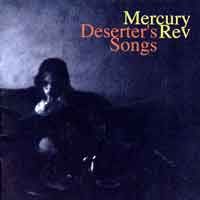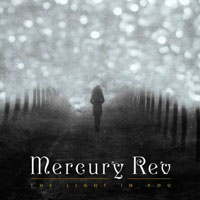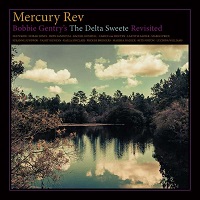Von den Post- und Psych-Rock-Abenteuern ihres Debüts »Yerself Is Steam« (1991) über die von Gründungsmitglied und Meisterproduzent Dave Fridmann inszenierten Kammerpop-Wunderwerke »Desert's Songs« (1998) und »All Is Dream« (2001) bis zum vollendeten Fantasy-Sound von »The Light In You« (2015) hat die Band aus Buffalo/New York eine erstaunliche Entwicklung genommen. Die Zuckerwattewölkchenstimme von Sänger Jonathan Donahue verleiht der ohnehin ziemlich schwerelosen Musik von Mercury Rev eine beinahe unwirkliche Schönheit.
Der Guardian lobte die Gruppe als »eine Rarität im Indie-Rock: eine Band, die ihren Sound kontinuierlich weiterentwickelt hat, indem sie über 25 Jahre hinweg an die Grenzen dessen stieß, was Rockmusik eigentlich bedeutet, und dabei Anleihen bei Jazz, Funk, Doo-Wop, Techno, Folk und mehr machte«, während der Rolling Stone ihr »majestätisches Chaos« lobte.
Das Debüt der Band, »Yerself Is Steam« von 1991, landete auf der Liste der besten Shoegaze-Alben aller Zeiten von Pitchfork, und ihr Durchbruch von 1998, »Deserter's Songs«, wurde bei seiner Veröffentlichung vom NME zum Album des Jahres gewählt. Große Festival- und Fernsehauftritte auf der ganzen Welt festigten ihren Status als die seltene Gruppe, die den Spagat zwischen Mainstream-Appeal und progressiven musikalischen und technologischen Experimenten schafft.
At the outset of Mercury Rev's wild and winding journey, fans could count on the band to deliver musical experiences unlike anything they'd heard before. From Yerself Is Steam's distortion-soaked bliss to Boces' technicolor anthems to See You on the Other Side's subtler psych-pop to Deserter's Songs' rootsier sounds, Mercury Rev reinvented their music continually while remaining true to themselves. On Born Horses, they still have that power. Free jazz, torchy ballads, and show tunes have all been a part of the Mercury Rev brew since the beginning, but on their first new music since 2015's The Light in You, they're the main ingredients. This time, the band deploys them with a maturity and control that only heightens the album's fusion of experimental sounds and genuine emotion. Likewise, Jonathan Donahue adopts a whispery, largely spoken-word delivery rather than his familiar wavering croon. Initially, it sounds jarring, but it soon proves vital to the album's success. His deft, light touch makes his words dance, uncovering the poetry in his memories and musings (beat poet Robert Creeley, who taught at State University of New York at Buffalo, where the band formed, was a major influence on the album). It all comes together in a swirl of transcendent sounds, brilliant imagery, and deep feeling on songs such as the breathtaking opener "Mood Swings," where Donahue ponders his unknowable mind, gliding from thought to thought like a trapeze artist over a deconstructed noir dreamscape of smoky trumpets and bustling drums. "Your Hammer, My Heart" is another stunner, turning heartache into a thing of surreal beauty that rivals "Everlasting Arm" for sheer Mercury Rev magic. Donahue's low-key vocals are the perfect foil to the sweeping instrumentation of "Ancient Love"'s fusion of new age and psychedelia, a blend the band gives a kaleidoscopic sparkle on the wonder-filled "Patterns." Perhaps more than previous Mercury Rev albums, Born Horses eloquently captures the valleys that accompany emotional peaks. The poignancy that shades the title track's fantasies also echoes in "There's Always Been a Bird in Me," which closes the album with a feeling of hope and acceptance that borders on heroic. "Everything I Thought That I Had Lost" might be most affecting of all, a dense, spiraling remembrance of the people and places lost to the years that shaped these songs. More grounded and yet more transporting than many of their later albums, Born Horses is ample proof that Mercury Rev are still making moving, thoughtful, exciting music -- and like most of their best albums, there's nothing else quite like it.
(by Heather Phares, All Music Guide)
 #20 in Jahresliste
#20 in Jahresliste  Plattentipp
Plattentipp 





